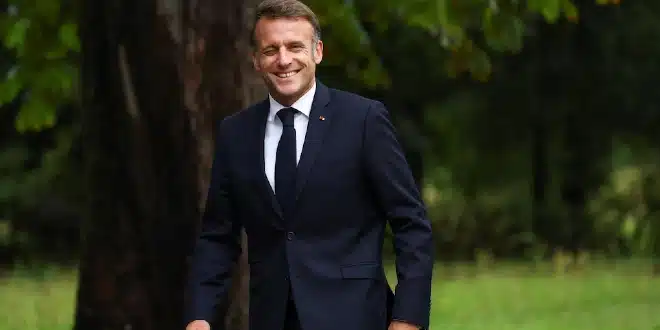France’s declaration that it will officially recognize a Palestinian state in September has ignited a wave of international responses, ranging from strong praise to sharp criticism. The announcement, made by President Emmanuel Macron, marks a significant shift in France’s foreign policy stance and places it at the center of an already polarizing global issue.
France Breaks with Hamas Yet Draws Its Praise
French Foreign Minister Jean-Noel Barrot emphasized that the move counters the ideology of Hamas, the Islamist group that controls Gaza and has long rejected a two-state solution. “Hamas has always refused the idea of two states. By choosing to recognize Palestine, France is standing in opposition to that terrorist organization,” Barrot posted on X, underscoring that the decision aims to support peace, not conflict.
Ironically, Hamas welcomed the French initiative, calling it “a positive step in the right direction toward doing justice to our oppressed Palestinian people.” The group encouraged other countries—especially in Europe—to follow France’s lead, regardless of Israel’s disapproval.
Israeli and American Backlash
Israel reacted angrily, with Prime Minister Benjamin Netanyahu condemning France’s recognition of Palestinian statehood as a move that “rewards terror.” He warned that such actions could embolden groups like Hamas and lead to the creation of another Iranian-backed base, likening it to what Gaza has become. “This doesn’t lead to coexistence—it threatens our very existence,” Netanyahu stated.
The United States echoed Israel’s concerns. Secretary of State Marco Rubio labeled the decision “reckless,” accusing it of fueling Hamas propaganda and undermining peace efforts. Referring to the Hamas-led October 7, 2023 attacks that escalated the war in Gaza, Rubio described France’s recognition as a betrayal of the victims and a blow to regional stability.
Global Support Gathers Momentum
In contrast, several nations and leaders have rallied behind France. Saudi Arabia praised the decision as “historic,” calling on the international community to support the Palestinian cause. Its foreign ministry said the move aligned with global consensus regarding the Palestinian people’s right to statehood and self-determination.
Palestinian Authority President Mahmoud Abbas celebrated the decision, labeling it “a victory for the Palestinian cause.” He asserted that France’s recognition reaffirmed its dedication to the Palestinian people’s legitimate rights to their homeland. His deputy, Hussein al-Sheikh, echoed these sentiments, highlighting the alignment of the move with international law.
Spain, which had already recognized Palestinian statehood, also welcomed France’s announcement. Spanish Prime Minister Pedro Sanchez praised the development, stating that it supports efforts to preserve the two-state solution—something he accuses Israeli Prime Minister Netanyahu of seeking to dismantle.
Germany Maintains Its Cautious Position
Despite growing support for recognition among European allies, Germany took a more reserved stance. A government spokesperson clarified that Berlin does not intend to recognize Palestinian statehood “in the short term,” arguing that such recognition should come at the conclusion of peace negotiations—not as a prelude. Germany reiterated that Israel’s security remains a top priority in its foreign policy decisions.
What This Means for the Two-State Solution
France’s upcoming recognition of Palestine represents a diplomatic gamble with far-reaching implications. While it has reignited hopes for a renewed focus on the two-state solution among supporters, critics argue that it legitimizes groups that remain hostile to Israel and derails peace efforts by acting unilaterally.
The move highlights a growing divide in global attitudes toward the Israeli-Palestinian conflict, especially in the wake of intensified violence in Gaza. Whether France’s decision catalyzes meaningful progress or deepens geopolitical fractures remains to be seen, but it has undeniably reshaped the diplomatic landscape surrounding one of the world’s most enduring conflicts.


